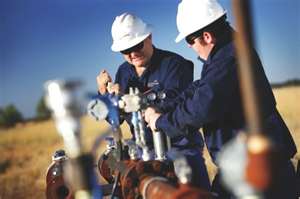Australia is changing its immigration policy to attract more skilled workers from the U.S. to fill posts in its booming mining and gas industries.
American engineers and skilled workers struggling to find work at home are being encouraged to fill skills shortages in Australia’s booming economy.
The Australian government expects demand for skilled construction workers to peak over the next three to five years.
Minister for Tertiary Education, Skills, Science and Research, Chris Evans said that while the government’s first priority was to train Australians, overseas workers would be needed to fill temporary gaps, particularly in the resources sector, set to peak over the next few years.
U.S. Ambassador to Australia Jeffrey Bleich welcomed the changes, calling them a ‘win-win’ for both countries.
He shares the government’s view that US workers will be prepared to make the move, even to remote areas in northwest Western Australia.
With US unemployment still hovering above eight per cent, Senator Evans said the opportunity for well-paid work in Australia would prove enticing, despite the long distance.
The government will also stage a ‘Skills Australia Needs’ expo in the US city of Houston, Texas, in May to attract skilled workers in the resources, energy and infrastructure sectors.
Immigration Minister Chris Bowen said he expected high demand for visas in the wake of the changes.
Business groups including the Australian Industry Group, the Business Council of Australia and the US Chamber of Commerce applauded the changes.
However, the Australian Council of Trade Unions (ACTU) says plans by the mining and construction industries to go on an overseas hiring drive are ‘premature’ and claims of skills shortages should first be independently investigated.
ACTU president Ged Kearney said, while resources states such as Western Australia have very low unemployment, workers across the rest of the country are facing increasing rates of insecure work.
ACTU says it does not oppose the initiative to match unemployed US workers with jobs in Australia, as long as there is a ‘genuine, temporary skill shortage’.
